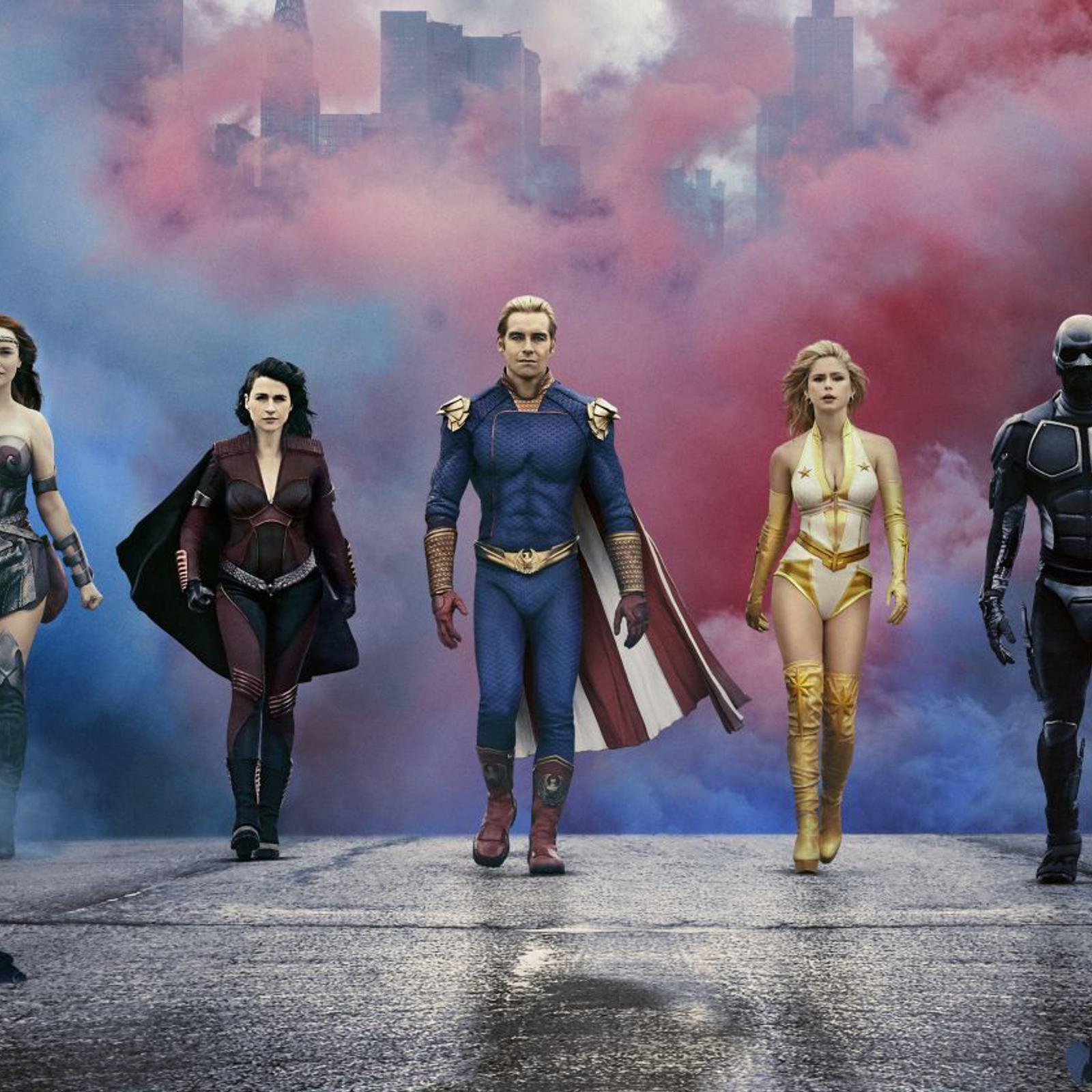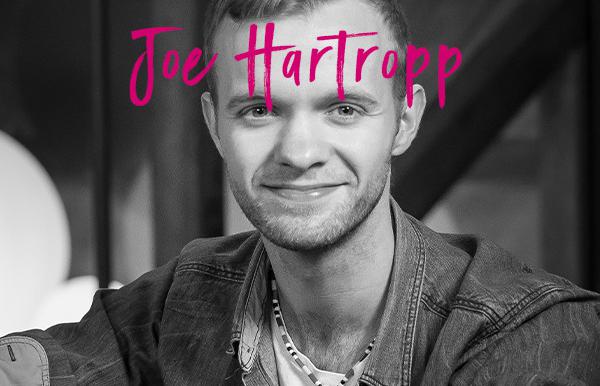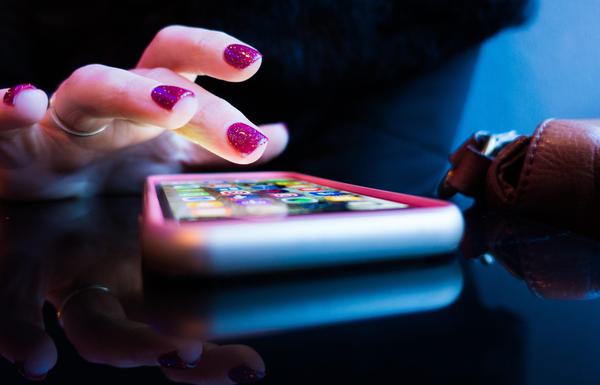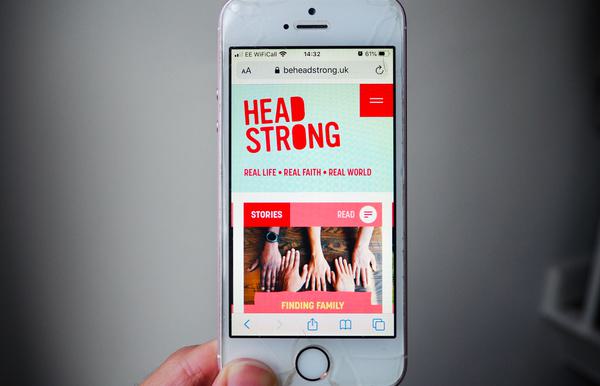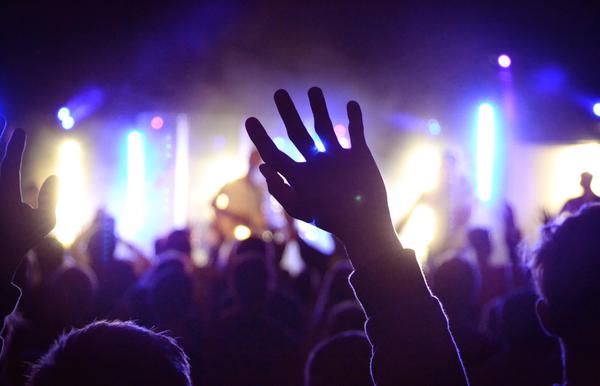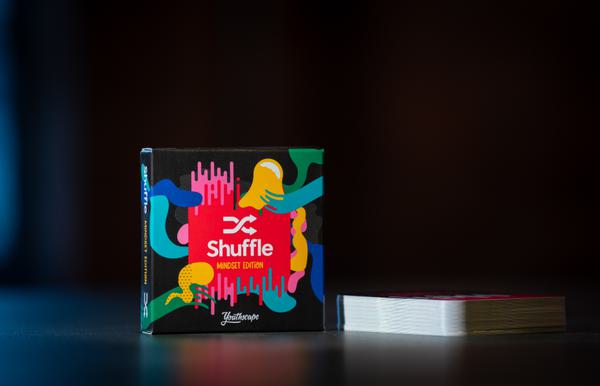The Boys is a dark, sharp superhero satire with plenty to say about faith, religious hypocrisy, and finding hope in an unjust world.
Amazon Prime’s The Boys is currently streaming its second season. It’s a dark, bloody, cynical show that relishes the chance to subvert all that you know about superheroes. It’s also interested in religion, false gods and whether hope can be sustained in the face of injustice. This is an explicit, violent, 18+ show that’s not made for young people, so you shouldn’t recommend it to them and may not wish to watch it yourself. And yet, there’s a high probability that young people you know will be watching and thinking about The Boys, and engaging with them about it could make for rich and deep conversation. Here’s a primer on The Boys, why it’s striking a chord, and how you could engage with it.
Super-saturation
You may have noticed that superhero media is a bit of a thing these days. We live in, depending on your persuasion, either a golden comic-book renaissance or an oppressive age of superhero saturation. You were probably either very excited by the epic crossover culmination event that was Avengers: Endgame last year, or you were very bored by it. It was a hugely successful film and yet one that you couldn’t really enjoy without good knowledge of the preceding 21(!) films of the Marvel Cinematic Universe (and they only started in 2008). Its success proved just how popular and pervasive that superhero universe now is.
That model of interconnected superhero stories has been aped across TV and other film franchises, such that there’s now seemingly just too much super-media for any one human to consume. Even the most furloughed among us might not have the appetite. It’s not just the amount of content that I think some find abrasive – it’s the tone. Superheroes, particularly the Marvel variety, are brightly dressed, quippy characters in pretty conventional stories that end with good prevailing over evil. There are hidden depths and nuances in the Marvel films, but it’s still a fair generalisation. All that splashy colour and optimism can feel insulting in our jaded times. We have to settle with a presently incurable pandemic, serial political incompetence and a cruel cocktail of social polarisation and physical isolation. It’s a world where we just know Captain America isn’t about to come around the corner and cure our ills. Maybe we think the superhero concept in itself is dangerous, fascistic even, in its simplistic ideology and elevation of super-powerful individuals who will solve our problems.
Fake heroes
Enter The Boys then, which takes a figurative and literal crowbar to the superhero myth. Jaded mercenary Billy Butcher (Karl Urban) leads an underground campaign against the ostensibly good but actually corrupt superheroes of The Seven – the Avengers/Justice League of this world. The shiny faces of this super-squad are just a façade: one is a pervert, one is a sexual abuser, one is a doping drug addict, and the Superman-type is…not super-nice. Is it so hard to believe that, granted with supernatural abilities, the powerful wouldn’t actually be responsible? “Power tends to corrupt” as the saying goes, and The Boys develops that logic to deconstruct the promise of the noble superhero. It’s not like the ‘good guys’ taking on The Seven are morally perfect either. They’ve dished out death themselves, tortured by the fact but lacking in alternatives when it comes to fighting the super-powered. Welcome to a grim world where injustice reigns and even the faintest glimmer of justice feels both compromised and naïve.
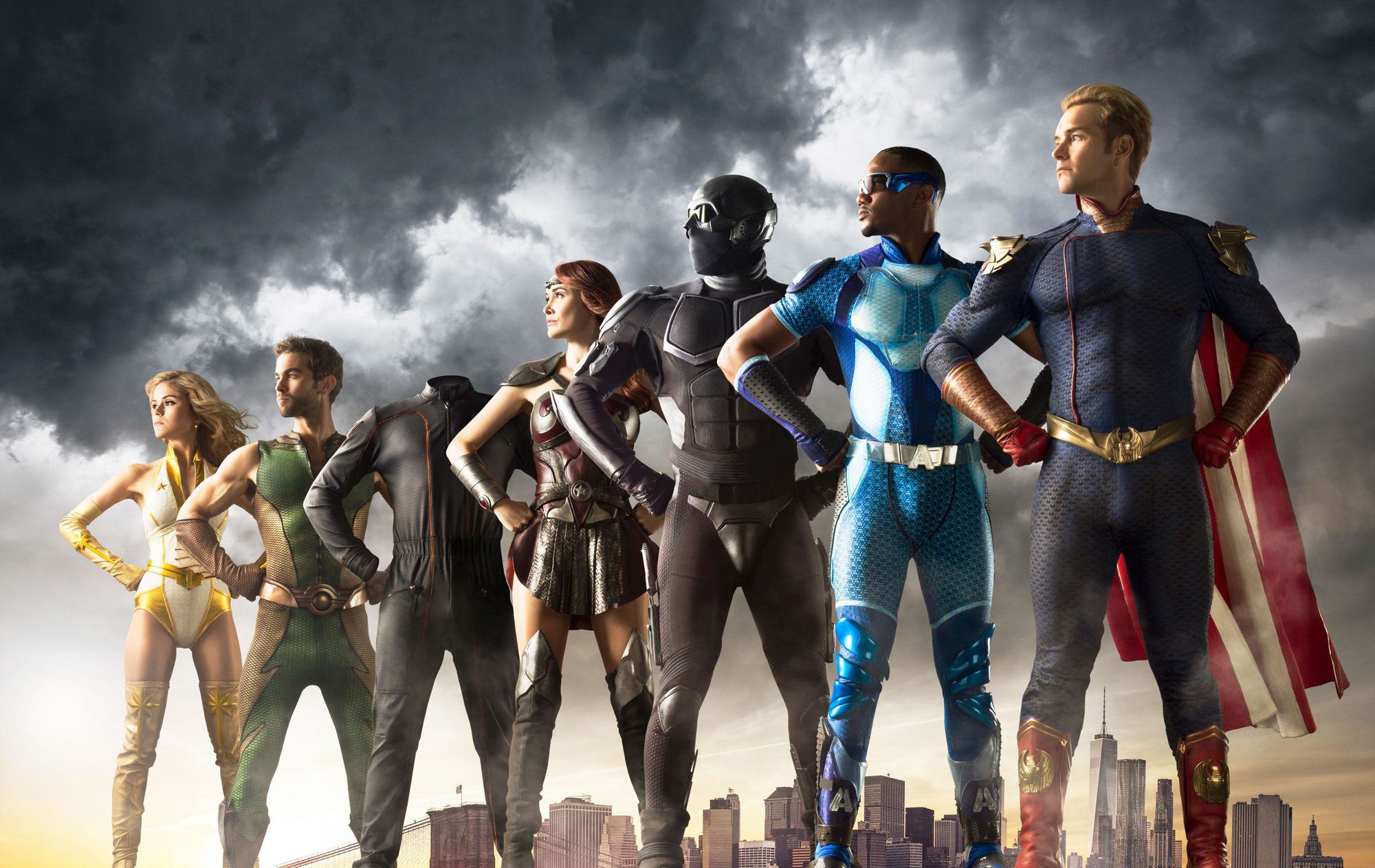
Are you even a youth leader if you’ve never attempted an analogy between God and the icons of our superhero media? You might have invited young people to think about how Jesus is like Superman (or indeed quite different), or how gifted individuals teach us about love, duty, and the power of sacrifice. But The Boys inhabits a godless world where both God and goodness are near-impossible to find. Its heroes don’t point to the heavens in gratitude – it turns out (spoiler alert) their miraculous powers are simply sourced from a manmade drug.
Those conspicuous absences make the show interesting however, and as we’ll see, still offer an opening for fruitful reflection. There’s not much that you’d want to emulate ethically from the The Boys, and it’s not a show that wants to point people to God. In fact, it’s largely suspicious of religion. But its interest in the idea of religion remains and makes it a fascinating if cringe-inducing watch.
False religion
There’s a few places where religion makes itself known in the two seasons of The Boys. In the first, one character traces a repressive, socially conservative evangelical upbringing as a key part of their story. They have to wrestle with the ways it both shaped them and – whether it changed, or they did – they might now reject it. It explores the way arenas of religious fervour can be more interested in tightly crafted spectacle and sentiment than honesty or any actual divine presence. It reflects on the depraved human component of religion, the way it’s used as a cover for corruption and hypocrisy. So yes, it’s deeply cynical, but also quite articulate. There’s a whole episode that takes place at a Christian festival! (Check out the clip below for a glimpse of that) You’ll find few if any references to religion in the Marvel Cinematic Universe – at least this story has something to say about it.
Season two introduces a strange cult-like group called the Church of the Collective, a riff on Scientology that offers one fallen hero a shot a redemption and rehabilitation. There’s an opening to religion there, though it seems more to do with psychedelics and self-help than any interaction with the divine. This religion ends up being just another way for a corrupt, exclusive few to hoard power and wealth.
Lastly, there’s a religious dimension to The Seven, insofar as these heroes are the supernatural icons of the day. They have god-like power, but they’re also global celebrities and corporate products, they spend more time shooting promotional films and honing their brands than doing any real life-saving activities. If these are the gods of the age, the show is all too happy to tear them down and suggest that wherever you find a glimmer of meaning or inspiration, know that something sinister lies beneath it. If you’ve followed any of the countless church abuse scandals that have come to light in recent years, that notion might feel depressingly accurate. The Church has its own heroes and celebrities, and across all denominations we’ve seen how those leaders have kept their darkness secret whilst maintaining a Christian exterior. The Boys has a critique of vain, hypocritical leadership that rings painfully true for the Church.
Fading hope?
While superhero media is usually an escapist thrill-ride from the drudgery of real life, I usually come away from watching The Boys thinking “thank God the world isn’t that bleak”. But sometimes our world is that bleak, and that can make The Boys cathartic in its capacity to name our pain. Perhaps its seemingly hopeless horizon serves as a prophetic warning to where our world might be going wrong. For all its cynicism, the show closes season two with a glimpse of hope; one character’s surprising moral growth prompts another to wonder if God could exist after all.
It’s quite possible you’ll be working with people who have been watching The Boys – how might you engage if you were in a conversation where a young person brought it up? You could talk about whether they enjoyed the show, and ask if they think darker, cynical stories have some kind of unique appeal or if they only encourage our depressive tendencies. A great question that opens up art of all kinds is “what do you think it was trying to say – and do you agree?” Of course, art isn’t always so obvious – messages can be hidden, or many points of view explored simultaneously – but with this question the focus becomes less about the art itself and more what we make of it, what it reveals in us. I’d be interested to know how young people receive the religious elements of the show – is some of it painfully familiar? Is it really a godless landscape or is there more going on? The Boys makes savvy commentary on celebrity and social media, how they’re frequently a façade used to obscure the true, ugly reality, or spin it into something people will like – does that ring true for young people’s experience?
Let’s be clear that this is an explicit, adult show – you shouldn’t encourage young people to watch it, but it’s good to be prepared if it’s something they want to talk about. It’s also helpful just to know what kinds of stories are taking root in the cultural imagination – after all it’s our stories that shape and guide us as we press on through our own dark times.
Image credits: Amazon Prime Video




